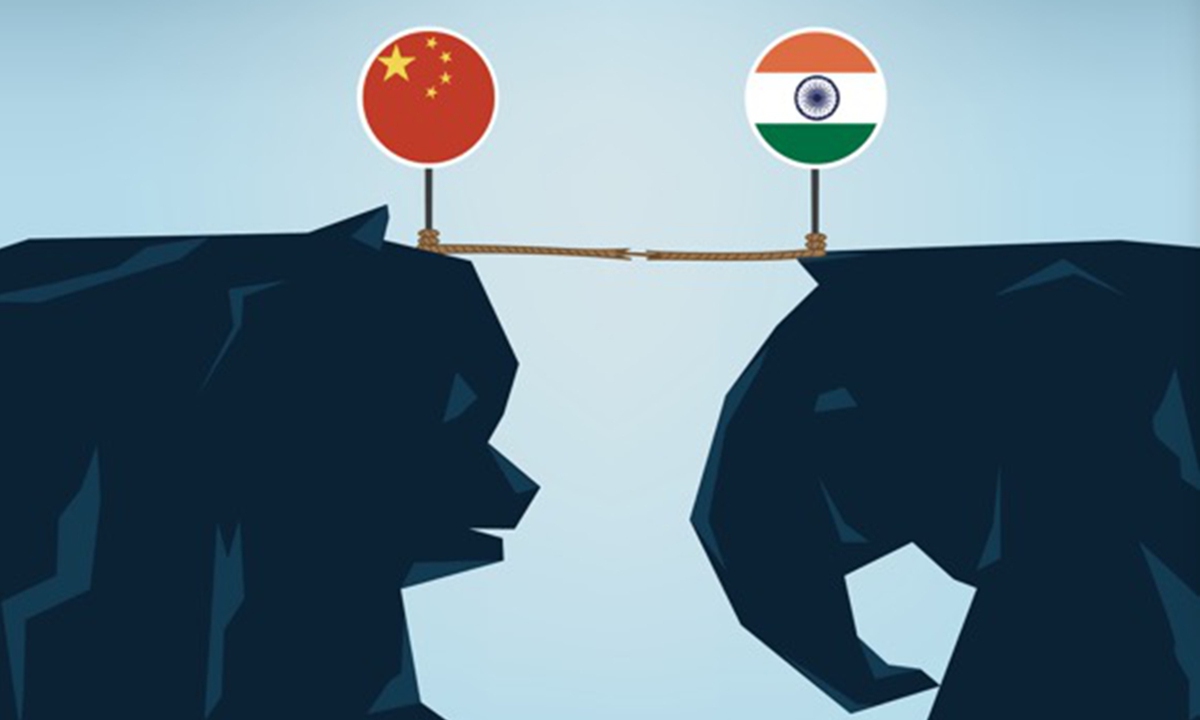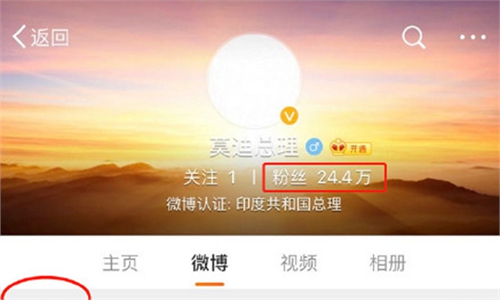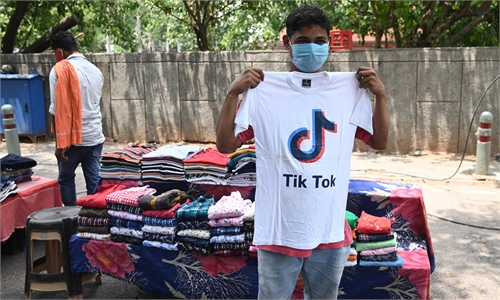
Illustration: GT
Editor's Note:
It has been three weeks since the clash between Indian and Chinese troops at the border area. Despite Indian Prime Minister Narendra Modi's acknowledgement that no troops intruded into the Indian side of the border, there has been sweeping nationalism in India that has led to the boycott of Chinese products and the ban of Chinese apps. Does nationalism override rational policymaking in India regarding its relations with China? Do China-India relations need a reset? Global Times (GT) reporter Wang Wenwen talked to B.R. Deepak (Deepak), a Sinologist and chairperson of the Institute of Chinese Studies at Jawaharlal Nehru University, about these issues.
GT: Some Indian experts believe the recent border clashes have led to a "worrisome and extremely serious" turning point in India-China relations. What is your take?
Deepak: It appears so. India and China delaying the clearance of containers at their ports and India's subjecting the imports to dumping duties and now banning 59 Chinese apps could be regarded as a spin-off of this confrontation. This may be further aggravated if the situation along the border doesn't improve. It is a good sign that military and diplomatic channels are active. Both have agreed to disengage and de-escalate the situation, but this needs to be reflected on the ground.
GT: We have seen the sweeping rise of Indian nationalism amid this border clash. There have been calls for boycott of Chinese products. Does nationalism override rational policymaking in India regarding its relations with China? How will this affect bilateral ties?
Deepak: The border is an extremely sensitive issue in India, and I believe it remains so in China as well. It largely remained peaceful for the last 45 years; especially in the western sector, India and China did not open a single shot since 1962. Galwan did not even figure in those points of discord along all the sectors. Deaths of soldiers amid de-escalation will certainly flare up nationalism, on both sides. Furthermore, since India has the tradition of revealing its casualties and organizing state funeral for martyrs, it certainly has the rippling effect on a pan-India level. It is under such an atmosphere that government comes under heavy pressure from various groupings, opposition parties and the population at large.
The call for boycotting Chinese products has been there for quite some time, hence, mostly steered by the Swadeshi Jagran Manch (SJM). The agenda of the SJM has taken roots in public minds, especially after the Galwan Valley standoff. Since May 25, 2020, it has launched the "Swadeshi Self-Reliance Campaign" with a five-point program. The very first point is a boycott of Chinese products. This can also be discerned from a recent government order declaring 42 of the Chinese apps as dangerous, followed by the launch of "Remove China App" developed by One Touch AppLabs, and now altogether banning 59 Chinese apps. But this time around, the government has not only been pressured by such groupings but also by the traders themselves.
The boycott of Chinese products and cancellation of contracted projects will adversely impact bilateral relations. It all depends on the situation on border. If the situation improves, we may witness the Indian government encouraging Chinese companies to relocate some of the supply chains in certain sectors as has been the case with mobile phone manufacturing clusters, electronics manufacturing, white electrical appliances facilities, optical fiber industry, and solar panel manufacturing.
However, India will remain skeptical of Chinese investment in Digital India and e-commerce in view of the recent ban of Chinese apps. Other sectors such as automobiles, infrastructure, railways, metros and so on can also see investment.
It would be extremely difficult for India to totally decouple from the Chinese economy at least in the short and medium term, for interdependence in sectors such as pharma, energy, automobile, electronics, furniture, machinery and so on is huge.
GT: What is the core of China-India relations? Do bilateral relations need a reset?
Deepak: The core of India-China relations should be mutual development and to be sensitive toward each other's sensitivities and core interests. I believe the understanding that China will not threaten India's security and respect its interest in the neighborhood has been undermined. This could be discerned from China's pivot to South Asia where China's focus is not on consolidating its ties with India but with the smaller countries in the vicinity. This is reflected in China's investment and diplomatic engagement in the region. Entente between China and Pakistan has made India believe that China's strategy is to pin India down to South Asia.
Therefore, if at all we wish to reset India-China relations, the principle of mutual and equal security has to be observed. Meanwhile, thorny issues between the two need to be addressed amicably as early as possible, and a détente on various other contentious issues need to be formulated.
But can it be done given the asymmetries in national strengths?
GT: From China's perspective, India's foreign policy has been influenced by the US to a great extent. But if India follows the US too closely, it will actually restrain its room in the international community. What do you think?
Deepak: I believe it is owing to the security dilemma that has been reinforced and intensified by various developments around us. The fact of the matter is that it reflects the shift in global balances of power and China's ambition to take the center stage even before the realization of the second centenary goal (to build a modern socialist country that is prosperous, strong, democratic, culturally advanced and harmonious by the middle of the 21st century).
I hope India doesn't have to make a choice between the US and China. The resolution of the border issue may calm down the temperature. But I believe the understanding on other regional and global issues will continue to determine whether India-China relations will be malevolent, benevolent or beyond the binary of friendship and animosities.



